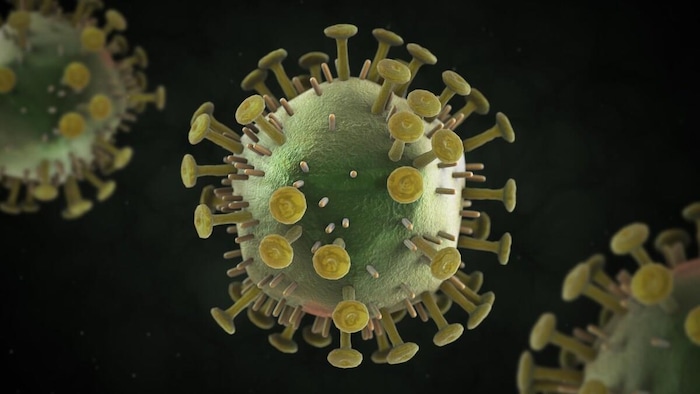Open in full screen mode HIV (Artistic illustration) Agence France-Presse The implementation of antiretroviral treatment just four weeks after an HIV infection could allow to control the virus in the long term after stopping treatment, suggest the results of a study carried out at the Pasteur Institute. These results, published last week in the journal Nature Communication (New window) (in English), reinforce the interest in early detection and treatment as early as possible for people with contracted HIV, underlines the institute. Previous studies had shown the possibility of lasting remission for people living with HIV who had benefited from treatment started early and maintained for several years. When their antiretroviral treatment was interrupted, they were able to control the virus for sometimes more than 20 years. The researchers then issued the hypothesis that treatment started early could promote this control of the virus, but this remained to be demonstrated. In this new study, the scientists carried out their research on monkeys and compared the animals: one group received two years of treatment that started shortly after infection (in the acute phase), one another two years of treatment which had started several months after infection (in the chronic phase), and a third had not received treatment. Consult the complete file Consult the complete file FollowFollow It appears that early treatment implemented within four weeks following infection very strongly promotes control of the virus after treatment interruption. Our study indicates the existence of a favorable period to promote remission of HIV infection, commented Asier Sáez-Cirión, head of the Viral Reservoirs and Immune Control Unit at the #x27;Institut Pasteur, and co-senior author. Other lesson: early treatment maintained for two years optimizes the development of immune cells. They acquire an effective memory of the virus and eliminate it naturally at the time of viral rebound after stopping treatment, according to Asier Sáez-Cirión. A start of treatment six months after infection – a time frame which shows a loss of effectiveness, according to our study – is already considered very rapid compared to what is currently happening in the clinic, where most people with HIV patients start their treatment years after infection because screening is too late, underlined Roger Le Grand, director of the IDMIT (Infectious Diseases Models for Innovative Therapies) infrastructure, also co-lead author of the HIV research. study.
AIDS: in the footsteps of a pandemic
AIDS: in the footsteps of a pandemic
HIV: very early treatment | AIDS: in the footsteps of a pandemic

